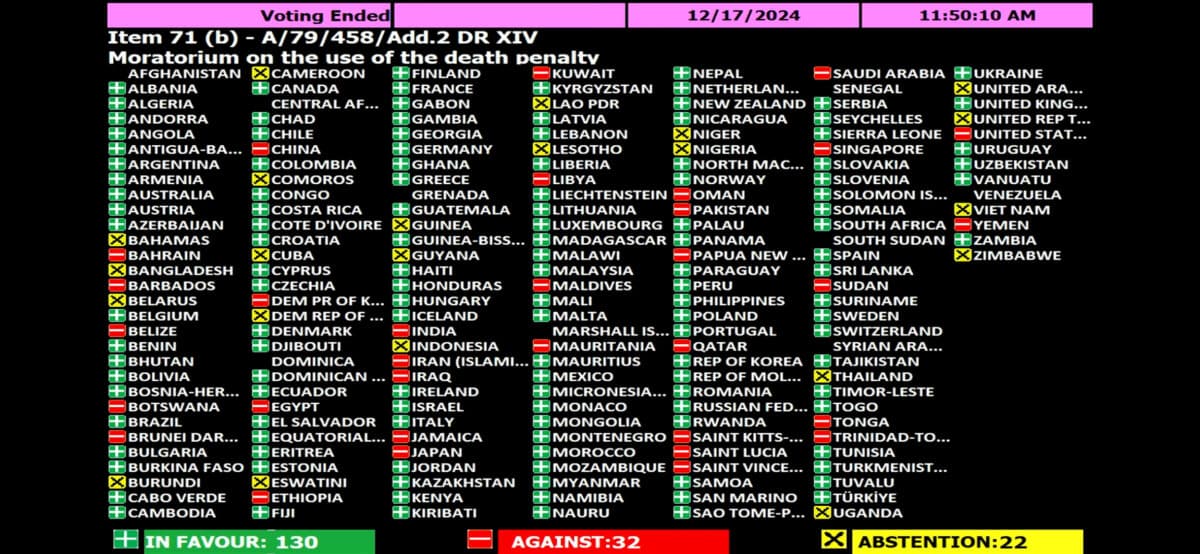Africa moving towards regional abolition treaty
Africa
Around 60 government representatives, NGO activists, members of African Union institutions and academics met with the members of the African Commission’s Working Group on the death penalty in Kigali, Rwanda between September 23-25, 2009.
For three days, the participants, who came from all over central, southern and eastern Africa, discussed the death penalty situation on the continent and avenues towards abolition.
The prospect of an additional protocol to the African Charter of Human and People’s Rights was at the centre of the debate. Such a treaty would allow willing African states to use a regional piece of legislation as a tool on the way towards abolition and to create a movement that would attract other countries.
Commissioner Slyvie Kaitesi Zaianabou, who chairs the Working Group, said th
at she would submit a draft protocol to African heads of state and government once she has discussed the issue with stakeholders at meetings such as the one held in Kigali.
Acting African Commission chairman Tom Nyanduga Bahame called for the adoption of an African protocol on the abolition of the death penalty and referred to those already in existence at UN level and with the European Convention on Human Rights.
A moratorium as a tool to fight the death penalty
Kigali delegates also looked into the moratorium as a tool to fight the death penalty. Prof Carlson Anyangwe, a member of the African Commission’s Working Group on the death penalty, pointed out that a long-term moratorium is always at risk of being reversed by leaders interested in short-term political gains. “For example, Cameroon resumed executions after 11 years of moratorium and Libya after 23 years,” he said.
“It appeared that a moratorium is an intermediate solution between abolition and the retention of the death penalty,” reported Fabien Safari Bahati, who represented Fiacat and the World Coalition at the Kigali conference. “One can regard the implementation of a moratorium as a step towards abolition.”
The Kigali regional conference will be followed by a similar event focusing on West and North Africa at the beginning of 2010.
“The views from participants to the conferences will be circulated widely among stakeholders, in particular member states of the African Union”, Commissioner Catherine Dupe Atoki told a recent meeting on the death penalty held on the fringe of the UN General Assembly in New York.
Download the full report on the Kigali conference by Fiacat/World Coalition
Photo (from left): Ms Silveira (Angola), Tom Nyanduga (African Commission), Ms Nguidjoi (Cameroon), Slyvie Kaitesi (African Commission) and Fabien Safari (Fiacat/World Coalition)







